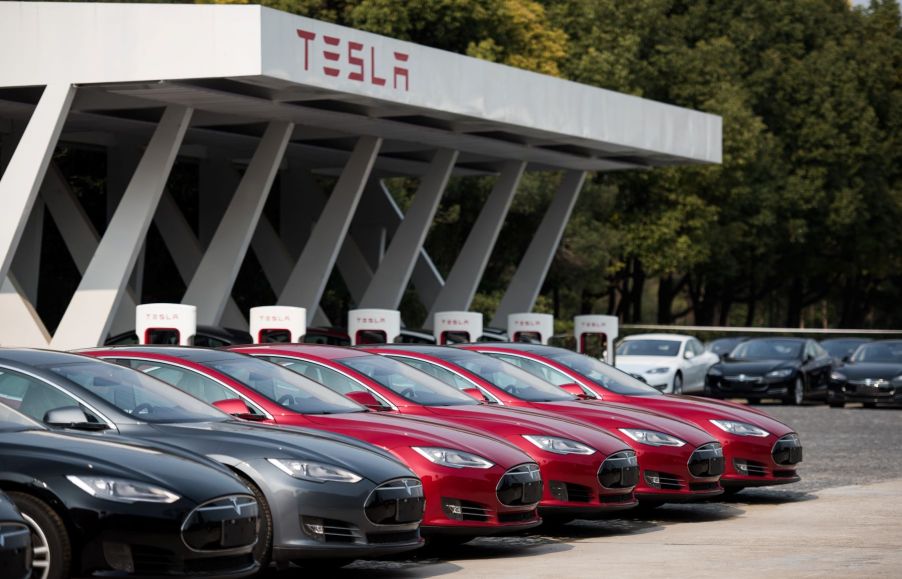
What Does Certified Pre-Owned Mean?
In 2022, finding a new or used vehicle to buy at a fair price is a daunting task. For a long time, certified pre-owned (CPO) vehicles have given peace of mind to customers. However, the question remains, can any car receive the CPO label? What does certified pre-owned mean, and is it worth the extra money to buy one?
Can any vehicle be certified pre-owned?

The only vehicles that can receive the CPO label are ones made by the automaker selling them. For example, if you’re shopping at a Nissan dealership, only Nissans will be certified pre-owned. Nissan doesn’t have the authority to certify Ford, Toyota, or Chevrolet models. If you see other brands’ vehicles labeled as “certified” in any way, question them. It’s likely a simple label that a specific dealership group invented to make it look better to customers. By no means is it a real certified pre-owned car.
In addition, and most obviously, only used cars can be CPO. If something odd like a customer trading in a car with 100 miles on it happens, it’ll seem like a new car is certified pre-owned. Keep in mind pre-owned means precisely that. It doesn’t mean it was owned for a long time and driven a lot. It just means another customer was the owner, even for a short period.
What makes a car certified pre-owned?

According to WSAV, besides being the proper brand and a used vehicle, there are some other items taken into account. The exact numbers and qualifications are different for every automaker. Customers can find each one online, or you can easily ask a salesperson in the dealership who will know the answer. Most often, a used car must be less than seven years old, have fewer than 60,000 miles on the odometer, and have certain things repaired in the reconditioning process.
Mileage, model year, and repairs are different for each automaker. By repairs, we mean an automaker like Ford might require all CPO cars to have tire treads larger than 6/32″. Many used vehicles might pass the service department to be sold legally with 4/32″ tires on them. However, if the sales department wants a specific model to receive the CPO stamp, they’ll need to replace the tires. There are plenty of other metrics other than tires, but with a CPO vehicle, you’re likely getting a better-maintained option than a non-certified pre-owned.
Other benefits of buying a CPO vehicle
Of course, certified pre-owned vehicles cost more money, so what makes them worth the price? By paying a bit more for the used car, you’ll get a host of extras. Other than a more excellent, safer car, you’ll also get extended warranties, roadside assistance packages, loaner vehicle access from the dealer, and sometimes even more. As with most of the qualifications, everything depends on the automaker, specific dealership, and location.
Next, customers have a little more leeway with negotiation on CPO vehicles. Here’s a pro tip from a previous dealership employee: each dealership location has monthly CPO quotas. They need to certify a certain number of cars and sell enough each month. Upon doing so, they’ll receive bonuses, brownie points, and who knows what else from the manufacturer. That’s why sometimes the dealer will go a little further for you to take one home. However, the dealership pays a fee to certify each car, so they’ll get more stubborn at a specific price point.
Reasons not to buy certified pre-owned
Firstly, there will be a more limited inventory available for purchase. If you’re interested in a particular color, package, etc., and the dealer doesn’t have a CPO model, you’re out of luck. Sometimes if the model you want would be too expensive to certify, the dealer won’t do the certification. For example, if an SUV requires $4,000 worth of service to make it sellable, the dealer will skip out on certifying it. That’s because the additional CPO fee would likely cause them to lose money even if they sold it for their listed price.
Moreover, the cost of the vehicle will be higher. For the same reason, dealers tend to make certified pre-owned models a lot more expensive. The certification requires more service to be performed on the vehicle and a CPO fee paid to the manufacturer. All of this can make each car much more expensive, which requires the dealer to ask for a higher price.
What does certified pre-owned mean?
In conclusion, certified pre-owned means the vehicle meets specific requirements from the manufacturer. Each automaker’s qualifications are different, so check what they are depending on the model you want. There are plenty of benefits to buying a used CPO model, but some downsides as well. In short, that’s what certified pre-owned means.



